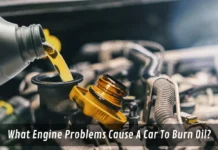Choosing between an Electric vs Petrol Cars can feel like deciding between the future and the familiar. With EVs gaining popularity, you might be wondering whether it’s time to make the switch or stick with a traditional fuel-powered ride. Both options have their advantages EVs offer sustainability and lower running costs, while petrol cars provide convenience and a well-established refueling network.
So, which one suits your lifestyle better? Whether you’re a long-distance traveler, a city commuter, or just someone who loves a good road trip, this guide will break it all down for you. Let’s explore the pros, cons, and key differences to help you make the right choice!
Table of Contents
- Upfront Cost and Long-Term Savings
- Environmental Impact and Sustainability
- Performance and Driving Experience
- Fueling vs Charging
- Maintenance and Reliability
- Range and Road Trip Feasibility
- Government Incentives and Future Trends
- Resale Value and Depreciation
1. Upfront Cost and Long-Term Savings

Electric cars, they’re like that fancy air fryer you’ve been eyeing: pricey upfront. A new EV can easily cost 35,00,000 or more, while a similar petrol car might be 26,00,000. Why the price gap? EVs have big, expensive batteries, and the tech is still figuring itself out (like me trying to fold a fitted sheet).
EVs can save you major cash in the long run. Charging an EV is usually cheaper than filling up a petrol tank think 1300 for a full “tank” vs. 4500+ for gas. Plus, if you charge at home during off-peak hours, it’s like getting a Black Friday deal on your electricity bill. Petrol cars, on the other hand, are easier on your wallet upfront, but fuel prices? They’re more unpredictable than my weather app. And don’t forget, petrol cars come with higher maintenance costs (we’ll get to that later).
Pro Tip: Some EV owners are living the dream by installing solar panels at home. Imagine charging your car for free with sunlight like your car’s sipping on a solar-powered smoothie! Sure, solar setups cost a chunk upfront, but over time, you’re basically driving on sunshine. How’s that for Instagram-worthy?
2. Environmental Impact and Sustainability

If you care about the planet (and you should, because it’s the only one with pizza), this is a big deal. Electric cars are the eco-warriors of the road, with zero tailpipe emissions. That means no nasty pollutants like carbon monoxide or nitrogen oxides clogging up the air. But hold up EVs aren’t perfect. Making their batteries involves mining for stuff like lithium and cobalt, which can be messy for the environment and raise ethical concerns.
Petrol cars, they’re like that friend who says they’ll recycle but always forgets. Burning fossil fuels pumps CO2 into the atmosphere, speeding up climate change faster than my cat chasing a laser pointer. But here’s a twist: if your electricity comes from dirty sources like coal, your EV might not be as green as you think. It’s like ordering a salad but drowning it in ranch dressing still better, but not that better.
Pro Tip: Check your local energy mix! If your grid runs on renewables like wind or solar, your EV is basically a superhero cape on wheels. Some countries are even building “green grids” to make EVs cleaner than ever.
3. Performance and Driving Experience
Electric cars, They’re like Usain Bolt on wheels. Thanks to instant torque, they accelerate so fast you’ll feel like you’re in a sci-fi movie. Ever driven a Tesla? It’s like being launched into hyperspace (minus the Stormtroopers). Plus, EVs are whisper-quiet, making your ride smoother than a jazz playlist. But some petrol lovers miss the engine noise it’s like missing the sound of your neighbor’s lawnmower on a Sunday morning.
Petrol cars, They’re the rockstars of the road. Think of the growl of a V8 engine or the thrill of shifting gears in a manual transmission it’s raw, it’s loud, and it’s alive. But they can’t match the instant power of EVs, and their higher center of gravity can make them feel less stable in tight corners. EVs, with their heavy batteries low to the ground, handle like go-karts perfect for pretending you’re in Fast & Furious.
Pro Tip: Some EV makers are adding fake engine sounds to their cars. Yep, you can get the rumble of a Mustang with the efficiency of an EV. It’s like wearing a leather jacket to a vegan barbecue best of both worlds!
4. Fueling vs Charging

Petrol cars, They’re the kings of convenience. Pull into any gas station, fill up in 5 minutes, and you’re back on the road. Road trips? Easy peas. Gas stations are everywhere, like fast food joints on every corner. But with fuel prices bouncing around like a toddler on a sugar high, those quick stops can add up faster than my grocery bill.
EVs, though, charging at home is a dream plug in overnight, wake up to a full “tank,” and feel like a genius. But public charging? It’s a mixed bag. Fast chargers can juice up your EV in 20–30 minutes, but they’re not as common as gas stations. And if you’re in a rural area, finding a charger can feel like searching for Wi-Fi in the middle of nowhere. Plus, charging takes longer than refueling, so you might need to plan your stops.
Pro Tip: Some EVs come with apps that show real-time charger availability and let you reserve a spot. It’s like booking a table at a fancy restaurant except instead of steak, you’re getting electrons.
5. Maintenance and Reliability
Electric cars are like that low-maintenance friend who never asks for much. They have fewer moving parts no engine oil, no spark plugs, no exhaust system. That means fewer things to break and lower maintenance costs. Most EV owners only need to worry about tires, brakes, and the occasional software update.
Petrol cars, they’re like that high-maintenance friend who’s always needing something. Oil changes, tune-ups, exhaust repairs it adds up faster than my Amazon cart during a sale. Plus, petrol engines are more prone to wear and tear, like an old pair of sneakers. But here’s the catch: EV batteries can degrade over time, and replacing them can cost a small fortune (think $5,000–$15,000). Most manufacturers offer warranties (usually 8–10 years), but it’s something to keep in mind.
Pro Tip: EVs use regenerative braking, which slows down the car and recharges the battery. It’s like getting free energy while driving, and it reduces wear on brake pads. Talk about multitasking!
6. Range and Road Trip Feasibility
Most EVs can go 200–300 miles on a full charge, which is fine for daily commutes but can be a nail-biter for long road trips. High-end models like the Tesla Model S can push 400+ miles, but they’ll cost you more than a small yacht.
Petrol cars, they’re the marathon runners of the road, with 400–600 miles per tank and refueling that takes less time than ordering a latte. Planning a cross-country adventure? A petrol car might feel more reliable. But EVs are catching up fast-charging networks are popping up like mushrooms, and battery tech is improving faster than my cooking skills.
Pro Tip: EV owners swear by range hacks like driving at moderate speeds or using eco-mode to squeeze out extra miles. It’s like playing a video game, but with your car. Bonus points if you make it to the charger without sweating!
7. Government Incentives and Future Trends
EV buyers: many governments are handing out goodies like tax credits, rebates, or free parking to encourage eco-friendly choices. In the U.S., you might get up to $7,500 in federal tax credits for buying an EV. It’s like getting a discount on your car just for being green. Petrol cars? They don’t get these perks, but they’re still widely available and supported.
Looking ahead, the future seems electric. Many countries are planning to phase out petrol cars by 2035 or 2040, and automakers are investing billions in EVs. But petrol cars aren’t going extinct just yet hybrids and cleaner fuels might keep them relevant, like flip phones making a comeback.
Pro Tip: Some cities are creating EV-only zones where petrol cars are banned. If you live in a forward-thinking city, an EV might future-proof your ride. Imagine driving through a car-free zone like a VIP!
8. Resale Value and Depreciation
EVs are still the new kids on the block, so their resale value can be unpredictable. Some models hold their value well (like Teslas), while others depreciate faster than my New Year’s resolutions. Battery concerns are a big factor buyers worry about range loss over time. Petrol cars, on the other hand, have a more established resale market, but they can lose value quickly if fuel prices spike or emissions regulations tighten.
Pro Tip: Some EV owners lease their cars instead of buying. It’s a smart way to avoid depreciation risks and upgrade to newer models with better range and tech. It’s like renting a fancy apartment instead of buying a fixer-upper.
Conclusion
The best car for you depends on your needs, budget, and driving habits. If you’re all about sustainability, cutting-edge tech, and lower running costs, an EV could be your perfect match. But if convenience, long road trips, and the classic engine roar matter more, a petrol car might be the way to go.
Both have their pros and cons EVs represent the future, while petrol cars offer familiarity and flexibility. The key is choosing what fits your lifestyle, not just the latest trend. So, what’s your pick? Let us know your dream ride!








